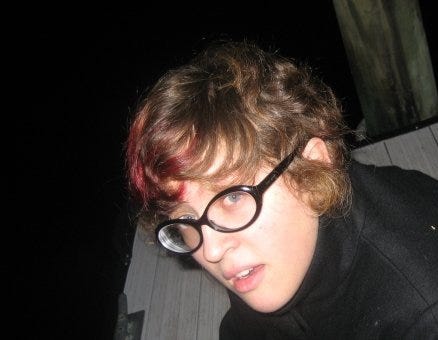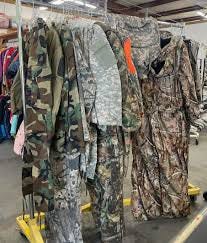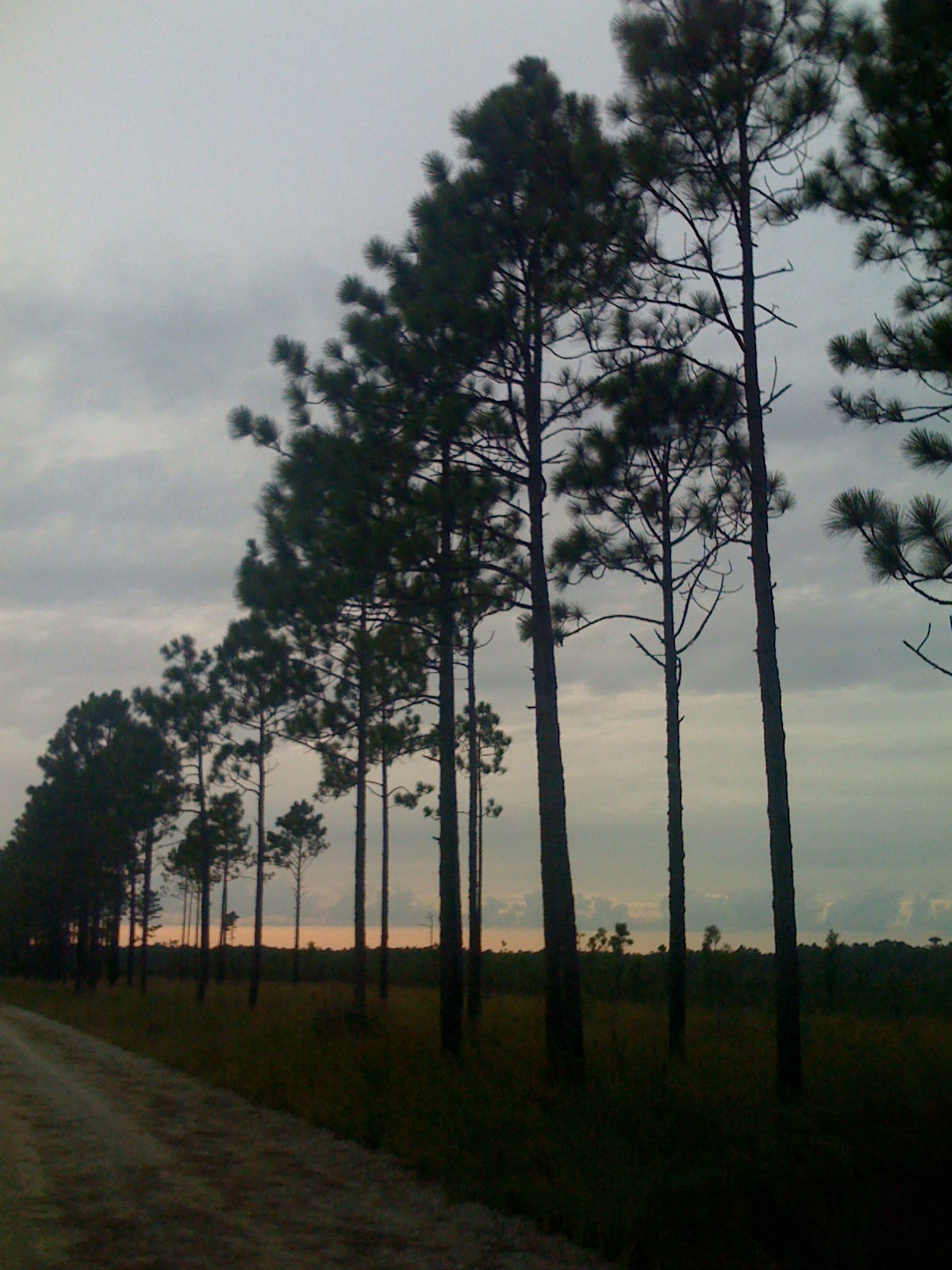In the mid-2000s, I was a teen, had a stacked bob that I spiked to look like Brody Armstrong of The Distillers, listened to Frank Zappa’s entire discography on repeat, and generally didn't talk to anyone. I smoked discarded cigarette butts on the road in front of our house. I remember the day I met my best friend at a sleepover I was invited to out of pity. She was wearing all black and the loudest one there and I loved her immediately. I remember the hoarder's house on the bus route I had to catch at 6 in the morning, we lived so far out. I remember the girl who lived there was mean and butch. I remember the White Oak River and the oyster beds and cutting my feet open in the dirty water because there was nothing to do in my small town but try to press on death until it gave.
I grew up in what is now Trump country, in a very small community in Eastern North Carolina along the coast. Culture was fried fish, cheap sand art at tourist shops and festivals, and sometimes traveling to the nearest town 25 miles away to buy clothes and organic food. I didn't really know I was queer until about 16, when I worked the Haunted Trail covered in blood and wearing my dad's torn suit. It was a Halloween haunted house but on a trail in the woods, with little scenes around every corner. I remember thinking to myself between groups of people, “Somehow it feels free to be unrecognizable.” My role models were teachers whose jobs were threatened for supporting the Gay Straight Alliance so they called it philosophy club or writer's guild and kept it quiet, for us.
I find an interesting thing happening in online spaces these days when it comes to representing queerness and queer culture. Largely political, largely fashionable, the picture we have of queerness is of a young person growing up in a mostly liberal community with many other queer friends and lots of places to "be queer" in the open through the consumption of certain types of culture: record shops, vintage stores with good fashion, bookstores, coffee shops, cute cafes with local fair, nice clubs, etc. They are clean, and cool, and chic, and well-read.
There are just a few representations of queerness from a rural POV, mostly folks from Appalachia or the South, folks like Reverend Ollie, the trans girl who plays the banjo over bigots, My Gay Fabulous Farm. Here on Substack, I search "rural queer" or "queer south" and I come up with crossfit blogs. The algorithm does not see us.
Sometimes I'll see duets or stitches of the accounts I listed above with someone filming themselves in the dark, uplifting the voices they resonate with but going no further. There are sometimes young people living in their family's trailer doing a trend or stepping a toe into some discourse of the day. These videos and thinkpieces have little engagement. Is it because no one cares? Can everyone can tell we've never read Butler? Are we being seen for the imposters we are?
The reality is that there are no GRWMs of going to the diner to work your shift, despite this too being a performance, a kind of sexuality one utilizes to make rent. There are no hushed earnest perspectives of the queer community one finds in the Petco, despite it being inexplicably the place where gender goes in a small town. There are no influencers for the Hem of His Garment Second Hand Store in a town of 4000. This too is queerness.
Rural queerness is an ephemeral thing, incapacitated by the religious right that rules over small towns and drives us from our homes. Being gay had no place to become concrete - it was always waiting somewhere at the corner. The flashes of belonging in parking lots: Chris telling me stories of his wigs and the only gay club in town that you had to take three side roads to get to. Dorothy, as kawaii as you could get in the black slacks and red polo we had to wear to work, smoking cigarettes and saying absolutely nothing. As I got older, reading poems under the lights at the burlesque club. Drag shows with a handful of people in the audience who had the enthusiasm of 50. Nights sitting in trees or on porches with other nonbinaries, all of us expanding into the shadows.
I don't think there should be a "platform" for being young and queer in the South, per se, at least not in the ways queer life circulates online in other parts of the country. I think these parts of our queer raising are sacred and can't be monetized but also shouldn't be glorified. They're an anti-culture, an outgrowth of depressed economics and Christian Nationalism and the military industrial complex. They can't become part of the algorithm because the broader cultural zeitgeist cannot fathom queer joy in a town where there are 4 of us, plus Greg from Fort Lauderdale. We must be starving for culture. We must be begging to leave.
Most of us are starving, most of us are begging to leave. Most of us are barely surviving, and it gets harder every year. As I get older, I don't know how to talk to young queer people about whether they should leave. Of course they should, I did. Of course I know it will hurt in ways they're not ready for.
They're not ready to miss the fluorescent lights of the grocery store parking lot on a Friday night. They're not ready to never again feel the flutter of seeing the gay receptionist in the farm service office. They're not ready to have such easy access to Gay Shit, we got so used to the crumbs that were the Corporate Rainbow endcap at Walmart.
They're not ready to lose the drives into the pine stand at dusk, knowing that the wildness staring back at them is theirs. They're not ready to forget what it feels like to take and claim the possibility that we might one day be loved, here, in this place, in our homes and no other, no longer wandering.








your writing is so incredibly beautiful. some of my favorite lines from you:
"there was nothing to do in my small town but try to press on death until it gave"
"Being gay had no place to become concrete - it was always waiting somewhere at the corner."
"Of course I know it will hurt in ways they're not ready for."
"They're not ready to forget what it feels like to take and claim the possibility that we might one day be loved, here, in this place, in our homes and no other, no longer wandering."
i wonder if you've heard of grendel menz? i think their poetry might resonate with you.
As someone who grew up in the rural Midwest, this really resonated, though I didn’t have access to things like organic food, fellow queer people, or a local covert GSA — I was a little envious reading about those! I think the Midwest is having a little pinkwashing moment with Tim Walz getting national attention. The rural areas have way more in common with Appalachia and the South than anywhere else.
I’m one of those people who ran away to a major East Coast city, and I feel guilty about it. I loved the land, though I learned in college it was never truly mine when I learned about land back. I loved my family, even when they didn’t reciprocate. I just couldn’t survive there. Maybe if I’d had queer friends or queer neighbors whose signals I could interpret, things would have been different. It makes me sad to hear that rural queers largely don’t have a presence online, though I must also be complicit in not even trying to seek that out. The book that took queer rurality the most seriously to me was Samantha Allen’s Real Queer America, and even that had stops in larger towns than the one I grew up in.
Thanks for writing this. It’s great.